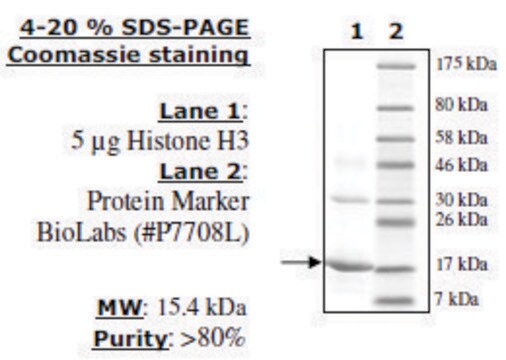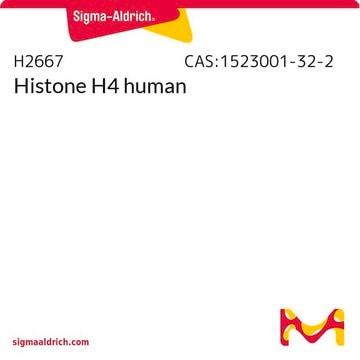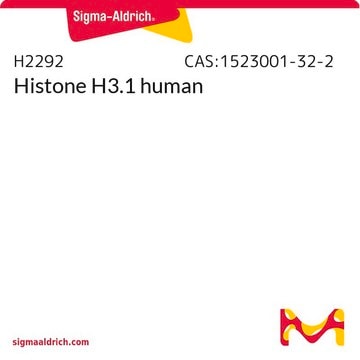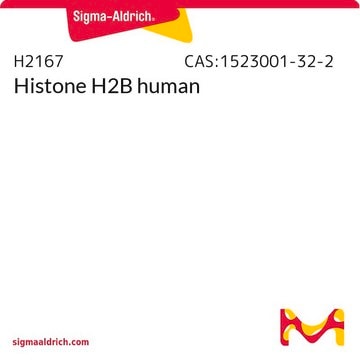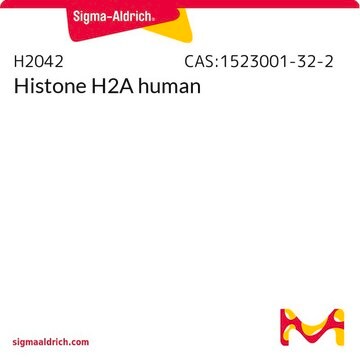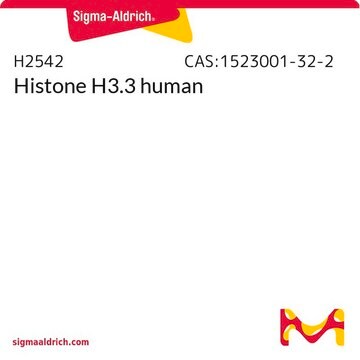SRP0408
Histone Octamer full length human
recombinant, expressed in E. coli, ≥90% (SDS-PAGE)
Sinónimos:
Histone Octamer
About This Item
Productos recomendados
biological source
human
recombinant
expressed in E. coli
assay
≥90% (SDS-PAGE)
form
aqueous solution
mol wt
113.8 kDa
packaging
pkg of 100 μg
technique(s)
cell based assay: suitable
solubility
water: soluble
shipped in
dry ice
storage temp.
−70°C
Gene Information
human ... HIST1H2BG(8339) , HIST2H2AC(8338) , HIST3H3(8290) , HIST4H4(121504)
General description
The histone octamer is a versatile protein assembly that has evolved to serve two opposing functions within the cell. It is required to bind and bend DNA to achieve fivefold compaction and partial charge neutralization of DNA, while also needing to release specific segments of DNA in a coordinated manner to allow the access of DNA-processing enzymes at the appropriate time. A modular assembly of histone dimers (consisting of either H2A and H2B or H3 and H4) binds to approximately 30 bp of DNA and is connected in a flexible yet stable manner to form a fundamental superhelical ′ramp′ with evenly spaced DNA-binding platforms.
Application
Biochem/physiol Actions
Storage Class
10 - Combustible liquids
wgk_germany
WGK 1
flash_point_f
Not applicable
flash_point_c
Not applicable
Certificados de análisis (COA)
Busque Certificados de análisis (COA) introduciendo el número de lote del producto. Los números de lote se encuentran en la etiqueta del producto después de las palabras «Lot» o «Batch»
¿Ya tiene este producto?
Encuentre la documentación para los productos que ha comprado recientemente en la Biblioteca de documentos.
Los clientes también vieron
Nuestro equipo de científicos tiene experiencia en todas las áreas de investigación: Ciencias de la vida, Ciencia de los materiales, Síntesis química, Cromatografía, Analítica y muchas otras.
Póngase en contacto con el Servicio técnico
